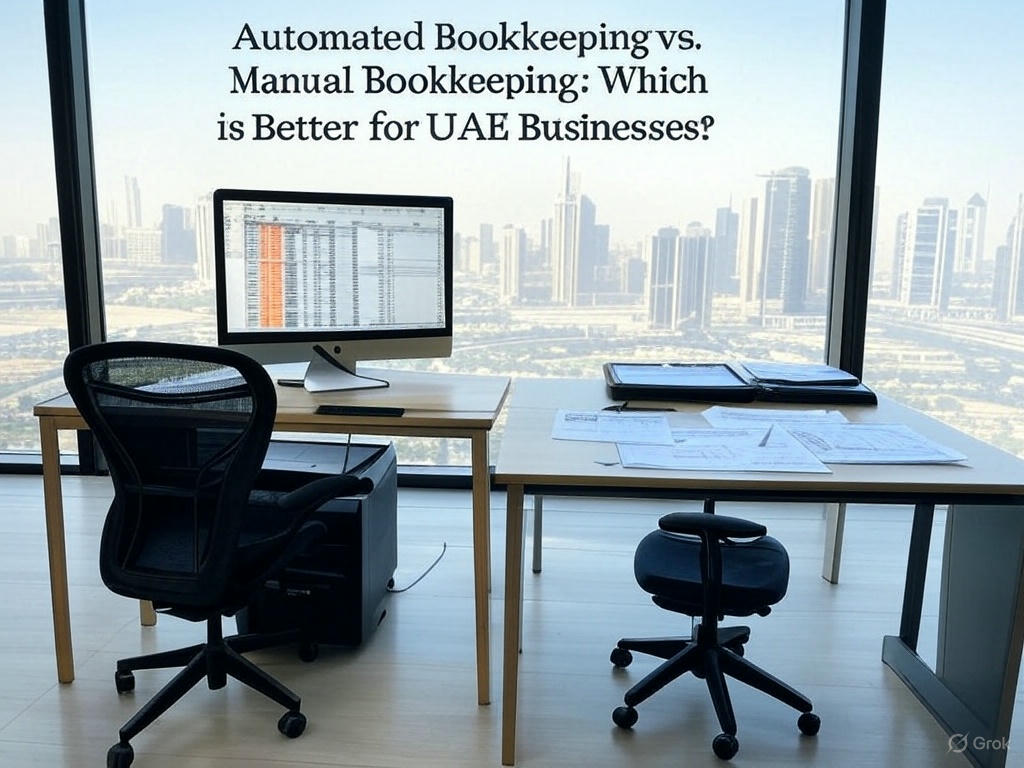
If you’re a business owner in the UAE, knowing how to register VAT for a new company is essential. Since VAT was introduced in 2018, businesses must meet certain vat registration requirements to stay compliant. Whether you’re launching a startup or managing an established firm, understanding who needs to register—and when—is the first step.
In this guide, we’ll cover the eligibility criteria for VAT registration in the UAE, including both mandatory and voluntary thresholds, documentation needs, and timelines like the VAT registration in UAE deadline.
Whether you’re based in Dubai or elsewhere in the UAE, this article simplifies how to register VAT for a new company in Dubai and beyond.
Mandatory VAT Registration: Who Needs to Register?
In the UAE, VAT registration becomes mandatory when a business’s taxable turnover exceeds AED 375,000 within the past 12 months or is expected to cross that threshold in the next 30 days. This includes income from goods, services, imports, and even certain exempt supplies. Understanding how to register VAT for a new company is important if your business meets this criterion. If you’re operating in Dubai, it’s essential to track your earnings closely to avoid penalties. Complying with vat registration requirements ensures you stay within the law and maintain your company’s credibility.
Voluntary VAT Registration: Who Can Register?
If your business turnover hasn’t reached the AED 375,000 mark but exceeds AED 187,500, you may still opt for voluntary VAT registration in the UAE. This is a smart move for startups and small businesses looking to build credibility and claim input tax credits. Understanding how to register VAT for a new company voluntarily gives you a head start in proper tax planning. Many Dubai-based businesses take this step even before hitting the mandatory threshold. Just ensure you meet all vat registration requirements to remain compliant.
Benefits of Voluntary Registration include:
Opting for voluntary VAT registration in the UAE comes with several benefits. It allows businesses to claim input tax on expenses, even before hitting the mandatory threshold. For those learning how to register VAT for a new company, voluntary registration also enhances credibility with suppliers and clients. It signals that your company is serious and compliant with UAE tax laws. Additionally, being VAT registered prepares you for growth and helps streamline future tax processes in Dubai and other emirates.
Eligibility Criteria for VAT Registration UAE
To be eligible for vat registration in the UAE, your business must conduct taxable activities and meet the turnover threshold. If your taxable supplies or imports exceed AED 375,000 annually, VAT registration is mandatory. Those earning over AED 187,500 may apply voluntarily. Knowing how to register VAT for a new company means checking if your business activities are taxable and if your revenue meets the threshold. For Dubai businesses, this is especially important to ensure timely compliance.
Documents Required for VAT Registration in UAE
When applying for VAT registration in the UAE, it’s essential to prepare the right documents to avoid delays and rejections. The Federal Tax Authority (FTA) may request business, financial, and identification records to validate your eligibility. Whether you’re learning how to register VAT for a new company or managing an established firm, the following documents are typically required:
Business Documents:
- Trade License – A valid trade license issued by the UAE authorities.
- Commercial Registration Certificate – Verifies your business’s legal setup.
- Memorandum of Association (MOA) – For companies, or ID copy for sole proprietors or individuals.
Financial Documents:
- Audited Financial Statements – For the previous financial year, if available.
- Bank Statements – Usually for the last 6 months to demonstrate business activity.
Other Supporting Documents:
- Proof of Business Ownership – Ownership documents or share certificates.
- Power of Attorney – If someone is applying on behalf of the business.
- Proof of Address – Recent utility bills, tenancy contracts, or lease agreements.
- ID & Passport Copies – Of authorized signatories or business owners.
- Certificate of Incorporation – For corporate entities.
Ensure all documents are:
- Valid and up-to-date
- In English or Arabic (translated if necessary)
- Certified if required by the FTA
Having these documents ready makes vat registration smoother and ensures you meet all vat registration requirements—especially crucial when considering the vat registration in UAE deadline.
Consequences of Not Meeting Eligibility Criteria
Failing to meet the VAT registration requirements in the UAE can lead to serious penalties and complications for your business. Whether you miss the VAT registration in UAE deadline or overlook eligibility rules, the consequences can affect your operations, finances, and legal standing.
Penalties and Fines
- Late Registration Penalty: Businesses that fail to register on time may face penalties starting from AED 10,000.
- Failure to Register: Ignoring vat registration obligations entirely can result in fines up to AED 50,000, depending on the severity and delay.
Interest on Unpaid VAT
- Monthly Interest: If VAT remains unpaid, an interest of 1% per month can be charged.
- Accrual Until Payment: Interest continues to build until the full VAT amount is paid.
Legal Consequences
- Court Action: The Federal Tax Authority (FTA) may initiate legal proceedings for non-compliance.
- Severe Penalties: In extreme cases, this may lead to further fines or imprisonment of responsible parties.
Business Impact
- Reputation Damage: Not registering for VAT can damage your credibility with partners and clients.
- Blocked Transactions: Many companies in Dubai and across the UAE prefer working with VAT-registered businesses.
- Compliance Challenges: You may face extra scrutiny or reporting requirements if your company fails to comply initially.
Whether you’re learning how to register VAT for a new company or already running an established business, staying ahead of deadlines and thresholds is crucial to avoid these setbacks.
Why Choose Fandeez for VAT Registration in the UAE?
At Fandeez, we simplify the VAT registration process so your business can stay compliant without the stress. Whether you’re a startup wondering how to register VAT for a new company or an established firm navigating the vat registration requirements, we offer tailored support. Our tax experts ensure accurate documentation, on-time filing, and full compliance with UAE laws. With Fandeez, you avoid penalties, meet every vat registration in UAE deadline, and build trust with clients.
Frequently Asked Questions
Who is eligible for VAT return in UAE?
VAT-registered businesses in the UAE can claim VAT returns on eligible input tax paid on goods and services used for business purposes.
What are the rules for VAT in UAE?
VAT in the UAE is set at 5% and applies to most goods and services. Businesses must register once they cross the mandatory threshold and file regular VAT returns.
Can a foreign company register for VAT in the UAE?
Yes, foreign companies making taxable supplies in the UAE can apply for vat registration, even without a physical office in the country.
What is the threshold limit for VAT?
The mandatory VAT registration threshold in the UAE is AED 375,000, while the voluntary registration limit is AED 187,500.
Do freezone companies need to register for VAT?
Freezone companies must register if their taxable supplies exceed the threshold or if they conduct business with mainland UAE. It's crucial to check specific vat registration requirements based on their zone.
Conclusion
Understanding the eligibility criteria for VAT registration in UAE is vital for every business operating in the region. Whether you’re a new entrepreneur figuring out how to register VAT for a new company or an established business keeping up with compliance, timely registration helps avoid penalties and builds trust. With clear VAT registration requirements and a straightforward process, staying compliant in the UAE has never been easier. Fandeez is here to guide you every step of the way—ensuring you never miss a VAT registration in UAE deadline.
-
Next Post
How to File VAT Return in UAE






